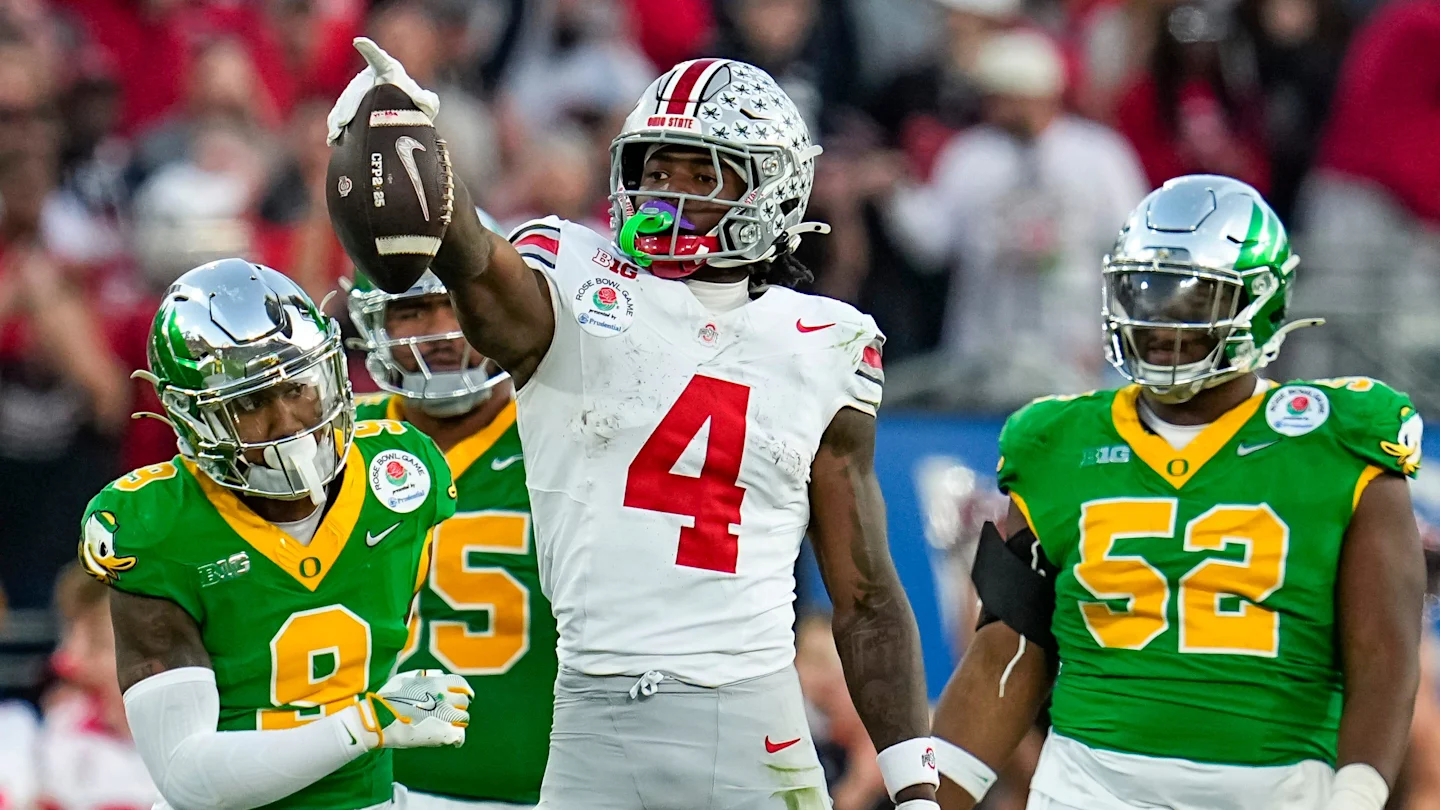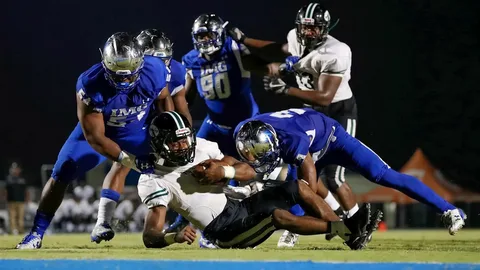Introduction: The Power of Team Chemistry
In the highly competitive world of college football, talent alone is often not enough to guarantee success. While athleticism, individual skill, and physical preparation are key elements of any team’s success, it’s the strength of the relationships between players, coaches, and staff that often makes the biggest difference in determining a team’s performance on the field. Team chemistry—the ability to work together seamlessly as a unit—is the glue that holds everything together, transforming a group of talented individuals into a cohesive, winning team.
This article will explore the concept of team chemistry in college football, why it’s essential for success, and strategies that players and coaches can implement to build and strengthen team relationships. Whether you’re a player, coach, or support staff, fostering strong team chemistry will not only improve your chances of winning but also help you create a positive, supportive environment for growth and development.
What is Team Chemistry?
In the context of college football, team chemistry refers to the sense of unity and collaboration among players, coaches, and staff. It involves mutual trust, respect, and a shared commitment to the team’s goals. A team with strong chemistry works together toward a common purpose, and the bonds formed between players and coaches translate into better communication, more effective strategies, and a stronger mental and emotional connection on the field.
While individual talent is crucial, football is a team sport that requires coordination and collaboration. On-field success relies on players working in sync, whether it’s executing plays, making split-second decisions, or supporting each other through challenges. Team chemistry extends beyond simply being friendly with your teammates—it’s about building relationships that make the team more effective, both on and off the field.
The Importance of Team Chemistry in College Football
1. Improved Communication and On-Field Execution
Football is a fast-paced sport that requires split-second decisions and perfect execution. Strong team chemistry improves communication between players and coaches, allowing the team to react quickly and cohesively. Whether it’s making adjustments during a game, communicating in the huddle, or executing complex plays, when players know and trust each other, they can rely on each other’s instincts and decision-making.
For example, offensive linemen must be in sync with the quarterback to successfully execute a play, while defensive players must communicate effectively to cover receivers and make tackles. Strong chemistry fosters better communication and a deeper understanding of each player’s tendencies, leading to smoother, more efficient execution.
2. Increased Accountability
When a team has strong chemistry, players hold each other accountable for their actions and performance. This accountability is vital to maintaining high standards and pushing each other to improve. Players are more likely to push themselves and each other to work harder, whether it’s in practice, lifting weights, or during games, because they know their teammates are counting on them.
This sense of accountability extends to all aspects of the game—whether it’s making sure to be on time for team meetings, putting in the effort during practice, or maintaining a healthy diet and sleep schedule. When players are committed to each other, they are more likely to stay disciplined and follow through on their responsibilities.
3. Boosted Morale and Team Spirit
Football seasons are long and filled with highs and lows. Teams face adversity in the form of losses, injuries, and other challenges. Strong team chemistry helps keep morale high, even during difficult times. When players have strong relationships with their teammates, they are more likely to support each other during tough times and celebrate successes together.
For example, after a tough loss, a team with strong chemistry will regroup, encourage each other, and focus on the next opportunity. A team without chemistry may start to fracture, with players blaming each other or losing trust in the coaching staff. Team chemistry provides a foundation of positivity, allowing players to remain motivated and resilient throughout the season.
4. Better Conflict Resolution
Disagreements and conflicts are inevitable in any group, but how a team handles these situations can significantly impact its success. In teams with strong chemistry, conflicts are addressed in a healthy and constructive way. Players trust each other enough to voice their concerns and listen to others’ perspectives, which leads to quicker resolutions and a more harmonious team environment.
In college football, where emotions can run high, players and coaches need to feel comfortable expressing themselves without fear of judgment or backlash. Healthy team dynamics lead to better conflict resolution, ensuring that issues don’t linger or negatively impact team performance.
5. Fostering a Positive Team Culture
A strong sense of team chemistry fosters a positive, supportive team culture. College football players spend a significant amount of time together, both on and off the field. The relationships they build with teammates become a part of their everyday experience, creating a sense of belonging and camaraderie. When the team environment is positive and inclusive, players are more likely to be motivated and engaged.
Additionally, a positive team culture can attract high-caliber recruits. Prospective players are often drawn to programs with a strong sense of team unity, where they know they will be supported and have the opportunity to develop both as athletes and individuals.
How to Build Strong Team Chemistry
Building strong team chemistry doesn’t happen overnight. It takes time, intentional effort, and commitment from everyone involved—coaches, players, and staff. Below are some strategies to foster team chemistry in a college football program:
1. Foster Open Communication
Clear and open communication is the backbone of any successful team. Coaches should create an environment where players feel comfortable sharing their thoughts, ideas, and concerns. Similarly, players should be encouraged to communicate openly with each other, both during practices and in more informal settings.
- Regular Team Meetings: Hold regular meetings to discuss team goals, address concerns, and share feedback. These meetings should allow for open dialogue and ensure that all voices are heard.
- Encourage Active Listening: Foster a culture of active listening, where players and coaches show respect for each other’s opinions and perspectives.
2. Encourage Team-Building Activities
Team-building activities are a great way to strengthen bonds and improve chemistry among players. These activities can be done both on and off the field and can range from casual social events to more structured team-building exercises. The goal is to help players build trust and camaraderie in a relaxed, non-competitive environment.
- Off-Field Socials: Organize social events such as team dinners, movie nights, or outings to give players the chance to bond outside of practice.
- Team Challenges: Engage in team-building challenges that require players to work together to solve problems, such as obstacle courses or problem-solving games.
- Community Service: Volunteering as a team can also help build a sense of unity while giving back to the local community.
3. Emphasize Trust and Respect
Trust is at the heart of team chemistry. Players need to trust their coaches, teammates, and staff to do their jobs and contribute to the team’s success. Building trust requires honesty, accountability, and mutual respect. Coaches should set the example by demonstrating trust in their players, and players should respect each other’s efforts both on and off the field.
- Create a Safe Space for Vulnerability: Encourage players to be open with their teammates about personal struggles or challenges. This helps build trust and shows that the team cares about each other as people, not just athletes.
- Promote Respectful Competition: While competition within the team is healthy, it’s important to ensure that players respect each other’s abilities and contributions. Everyone should feel valued, regardless of their role on the team.
4. Cultivate a Shared Vision
Team chemistry thrives when everyone is working toward a common goal. Whether it’s winning a championship, improving as individual players, or simply improving team dynamics, having a shared vision gives players and coaches something to rally around.
- Set Team Goals: Clearly define team goals and make sure everyone understands and buys into them. Whether it’s winning a bowl game, improving practice performance, or fostering unity, setting concrete objectives helps guide the team’s actions and behaviors.
- Celebrate Achievements: Acknowledge individual and team accomplishments to reinforce the shared vision and motivate players to continue working together.
5. Lead by Example
Coaches and team leaders (captains or senior players) play a critical role in setting the tone for team chemistry. Their behavior, attitude, and leadership style will influence the entire team. A good leader demonstrates hard work, accountability, and respect for teammates, setting an example that others will follow.
- Model Positive Behavior: Coaches and leaders should model the behavior they want to see in the team. Whether it’s showing respect to others, working hard in practice, or handling setbacks with grace, leaders set the standard for everyone else.
- Encourage Mentorship: Foster relationships between younger players and veterans. Senior players can serve as mentors, offering guidance and support to help new players acclimate to the team environment.
Conclusion: The Lasting Impact of Team Chemistry
Strong team chemistry is an essential ingredient for success in college football. It enhances communication, increases accountability, boosts morale, and creates a positive, productive team culture. Teams that invest in building relationships both on and off the field are better equipped to handle the challenges of a long season and achieve their goals.
By fostering trust, promoting open communication, encouraging teamwork, and setting a shared vision, college football teams can develop the kind of chemistry that leads to success. Whether you’re a player, coach, or support staff member, your role in creating and nurturing team chemistry is vital to the team’s overall success. In the end, strong relationships not only improve football performance but also shape the experience of each individual athlete, contributing to both personal and professional.














Leave a Reply